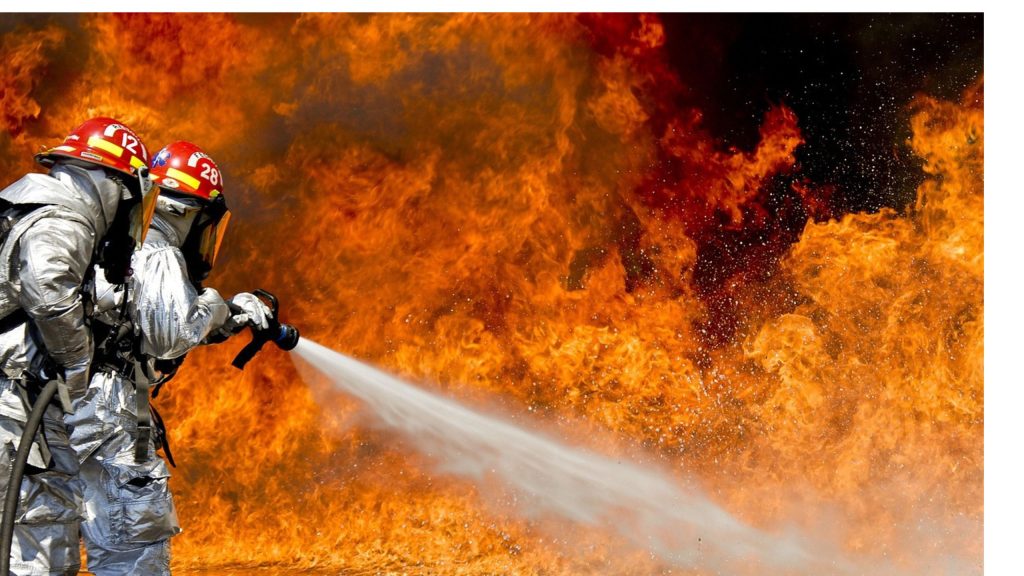Firefighters play an absolutely vital role in protecting our communities. Their duties involve responding to fire incidents, rescuing people from dangerous situations, administering first aid, conducting fire safety inspections, and educating the public on fire prevention.
It’s a career path like no other that provides immense rewards.In 2024, hiring trends for firefighters across the UK are projected to expand. Most firefighters work for county or metropolitan fire and rescue services.
These services regularly recruit new firefighters to their teams. With the right combination of physical fitness, education, people skills, and determination, you can start an exciting and meaningful career as a 2024 firefighter.
Physical Requirements
Firefighting is an extremely demanding job, both mentally and physically. Candidates must meet certain fitness benchmarks:
- Aerobic endurance: Ability to carry out tasks like climbing ladders, operating equipment, and carrying hoses over extended periods.
- Anaerobic endurance: Short bursts of energy to perform tasks like search and rescue in burning buildings.
- Muscular strength: Needed for forcible entry into properties, moving debris, and carrying people to safety.
- Coordination: Balance, agility and motor skills to work in dangerous environments.
Firefighter roles also require passing medical exams to screen for conditions that could impair essential duties. Eyesight, hearing and cardiovascular health must meet certain standards. Candidates should be prepared for stringent physical testing during the application process.
Education and Training Requirements
The formal education requirements to become a firefighter in the UK include:
- GCSEs or equivalent in English, maths, and preferably the sciences. Regional services may specify a certain number of passes at certain grades.
- Completion of the 5-day Firefighter Selection Test to demonstrate physical fitness.
- Finishing initial firefighter training and probation period upon hire.
Many candidates also complete additional qualifications that improve their competitiveness:
- Level 3 Certificate in Fire Science, Fire Safety and First Aid
- Firefighter Apprenticeship Programme (2-3 years)
- Level 3 or 4 qualification in a relevant subject like health and safety
- Emergency medical technician (EMT) certification
- UK driving license
Gaining relevant knowledge and credentials before applying shows commitment to the field. Ongoing professional development is also crucial for promotion opportunities.

Applying to Fire Services
The vast majority of firefighters in the UK work for county or metropolitan fire and rescue services. To become a firefighter, you must successfully pass each service’s competitive application and screening process. This typically involves:
- Submitting an online application form listing your qualifications, background, references and other details. Applications often occur during specified windows.
- Taking written tests focused on situational judgement, teamwork, problem solving and/or mechanical reasoning.
- Completing physical fitness assessments testing aerobic endurance, strength, agility and motor coordination.
- Going through in-person interviews to demonstrate knowledge and presentational skills.
- Passing comprehensive background, medical and reference checks.
- Completing a 6-12 week initial training programme upon job offer.
The process is highly competitive, with hundreds of applicants per opening. Preparation is key. Reaching out to recruiters for inside tips on testing can be extremely helpful. Persevering through a rigorous selection process demonstrates the dedication needed to succeed in this demanding yet rewarding public service role.
Probationary Period and Ongoing Training
Upon hiring, new firefighters enter a probationary period, usually lasting 6-12 months. During this time, they complete extensive classroom and field training on:
- Fire prevention, safety, and suppression strategies
- Operating specialised equipment like hoses, ladders and fire engines
- Administering first aid and CPR
- Performing searches, rescues and ventilation
- Hazardous materials handling
- Dealing with water, flood and road traffic emergencies
- Conducting community safety education and inspections
Probationers work under close supervision of experienced firefighters during calls. Successfully completing initial training is required to transition to full firefighter.
Even veteran firefighters undergo ongoing regular skills refreshers, new protocol training and certification renewals throughout their career. Continued learning and development is a crucial part of the job.
Career Development and Specialisation
As a firefighter, you can advance your career in several ways:
- Promotion: Take on leadership roles with titles like crew manager, watch manager and station manager after gaining experience. Promotions require extra study and qualifications.
- Specialisation: Train to join specific teams like hazardous materials response, marine rescue, major trauma care or urban search and rescue after some initial experience.
- Training: Become an instructor at a fire service college or academy, training probationary recruits and established firefighters.
- Fire investigation: Work alongside police to determine causes of fires and look for any criminal activity.
- Community education: Coordinate fire prevention and education programs full time for schools, businesses and the public.
Emergency planning: Help create emergency plans and procedures for fire brigades, local authorities and infrastructure.
Hard work, leadership capability and ongoing qualifications can lead to exciting career development.
Understanding UK Fire Safety Laws
Firefighters must fully comply with all legislation relating to fire safety and prevention in the UK. Key laws include:
- The Regulatory Reform (Fire Safety) Order 2005 – Sets out fire safety duties for businesses and owners/managers of commercial properties and workplaces. Firefighters inspect covered premises.
- Fire and Rescue Services Act 2004 – Establishes legal responsibilities for fire services in the UK. Firefighters must uphold duties outlined in the Act.
- The Fire Safety Act 2021 – Requires residential properties to have working fire alarms on every floor and external doors. Impacts inspection duties.
- The Smoke and Carbon Monoxide Alarm Regulations 2015 – Requires private rented properties to have compliant smoke and CO alarms. Affects inspections.
Additionally, firefighters must follow all operational policies and protocols set forth by their particular fire and rescue service to safely and effectively respond to emergencies.
Importance of Physical Fitness
Remaining in top physical condition is absolutely vital for firefighters to perform their duties safely and effectively. To maintain fitness:
- Most fire brigades mandate weekly exercise routines for crews during shifts. Activities like weight training, running, swimming and other drills keep strength and endurance sharp.
- Proper nutrition helps support the demands of the job. Many stations have cooking facilities and promote healthy eating.
- Annual or bi-annual fitness assessments test aerobic fitness, strength, flexibility and body composition. Passing is required.
- Team sports and athletic competitions between different fire crews helps promote physical fitness.
- Injury prevention best practices during training reduce risks. Proper warm ups, cooldowns and stretching are key.
Fitness directly impacts job performance and safety for firefighters entering hazardous environments. Prioritizing physical health is essential.
Keys to Success as a Firefighter
To excel as a firefighter, cultivate these essential qualities:
- Courage under pressure
- Teamwork and communication skills
- Problem-solving abilities
- Physical strength and stamina
- Commitment to public service
- Willingness to take initiative
- Stress tolerance
- Integrity and work ethic
- Composure in life-or-death situations
This is an immensely challenging yet deeply rewarding career path for those who have the right combination of physical ability, mental fortitude and heart. With proper training and dedication, 2024 could be the year your calling as a firefighter begins.
FAQ:
1.What are the requirements to become a firefighter in the UK?
Answer: You need to be over 18 years old, have a reasonable level of fitness, hold a full UK manual driving licence, and pass background checks. You’ll also need to complete the Firefighter Selection Process which includes tests of strength, fitness, problem solving skills, and situational awareness.
2. What qualifications do I need?
Answer: There are no mandatory qualifications but having GCSEs in English, math and science can help. Some fire services may require you to have a Level 3 Diploma in Fire Science and Fire Safety. Going through an Apprenticeship in Fire and Rescue Services can also be beneficial.
3. How long does it take to become a firefighter?
Answer: The training usually takes around 6 months – this includes a 15 week intensive training course. Then there is an ongoing development program over several years on the job. So it takes commitment and time to become fully competent.
4. What is the application process?
Answer: The main stages are: application form, physical tests, written tests, interview, medical exam, background checks, and then the training program if successful. The process is highly competitive so thorough preparation is advised.
5. What is the firefighter salary in the UK?
Answer: Salaries usually start around £23,000 per year for newly qualified firefighters. With experience this rises to around £29,000. There are also additional allowances for shifts and overtime. So overall packages can reach £40,000 for experienced senior firefighters.
conclusion
To become a firefighter in 2024, you’ll need to meet physical benchmarks, obtain GCSEs and relevant qualifications, and pass the competitive selection processes of fire services across the UK.
With extensive initial training, a strong team ethic, courage under pressure, and a commitment to lifelong learning, an exciting and meaningful career awaits in public service protecting communities from harm. The opportunity to make a difference calls.

